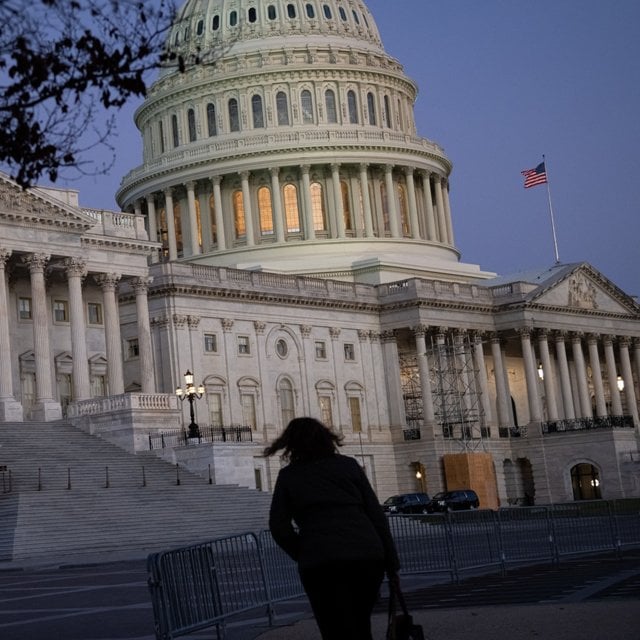Fed to Face Rising Tensions in Next Congress on Inflation and Jobs

In contrast, when Powell last testified before the House panel in June, McHenry said: “The Fed should be focused on price stability. That should be their single-minded focus at this moment in time.”
McHenry acknowledged that the Fed’s inflation projections were wrong while also saying he’s confident the central bank “is taking this emergency seriously” and moving to curb prices. He had harsher words for Democrats, attributing inflation to their “wasteful spending.”
Split Control
Sarah Binder, co-author of a book on the Fed and Congress, said split party control of the two chambers historically hasn’t resulted in major reforms that impact the Fed.
But Binder said there is a common pattern in such situations: the minority party, as in the case of Democrats the House in the next session, “does ramp up its threats against the Fed when the economy is in the dumps.”
President Joe Biden, for his part, has offered his endorsement of the Fed’s rate hikes and stressed the central bank’s independence, in contrast with GOP predecessor Donald Trump’s relentless criticism of Powell — his own pick for Fed chair — for keeping interest rates too high in 2018 and 2019.
Of course, much depends on how the Fed achieves its mandate of maximum employment and stable prices over the next two years.
Economists surveyed by Bloomberg see a recession as more likely than not in the next 12 months. While October retail sales data on Wednesday suggested consumers remain resilient, some companies describe conditions that make it seem like a downturn is on the doorstep.
Right now, Powell is leading the charge toward even higher interest rates than officials forecast in September, with markets pricing in a peak near 5%, up from the Fed’s current target range of 3.75% to 4%. Yet recessions can unwind business spending and hiring plans suddenly, resulting in downturns that are often more severe than forecasters — or Fed officials — expect.
The Fed will be an easy target for lawmakers if a downturn results from their tightening campaign, if only because their earlier misstep helped give inflation a head start.
Already, Americans have seen weaker purchasing power, rising mortgage costs and plunging retirement portfolios. The future may bring job losses.
“Consumers are feeling the volatility, and the business community is going to be angry” if the economy tips into a recession, said Christopher Whalen, chairman of Whalen Global Advisors, a financial consulting firm.
(Photo: Bloomberg)







